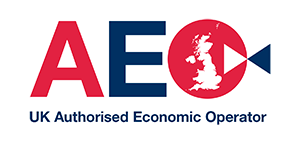
The Border Target Operating Model – Compliance and Enforcement Approach January 31 to April 30 2024
Requirements for traders
The threats to public health and from animal and plant disease, such as African Swine Fever and Xylella fastidiosa, continue to change and it is important that responsive biosecurity controls are in place to combat them. The UK government will expect the supply chains of goods subject to Sanitary and Phytosanitary (SPS) controls to be ready for the following changes:
From 31 January 2024 traders must:
- Continue to provide an Export Health Certificate (EHC) for live animal and germinal product imports.
- Obtain an Export Health Certificate (EHC) for medium risk animal products, and some high-risk food and feed not of animal origin (HRFNAO).
- Obtain a Phytosanitary Certificate (PCs) for medium risk plants and plant products.
- Continue to provide a Phytosanitary Certificate (PCs) for high-risk plants and plant products.
The person responsible for the load:
Must continue (begin for movements from Ireland) pre-notifying Great Britain via the Import of Products, Animals, Food and Feed system (IPAFFS) for all live animals, germinal products, animal products, high risk food and feed not of animal origin (HRFNAO) and medium and high-risk plant and plant products.
Our approach to compliance - inform, enable, enforce
Most traders will want to meet their obligations and demonstrate the best endeavours to comply with new import controls. Our compliance approach for EU movements of goods is therefore focused on enabling these traders to meet the requirements of the new regime.
We will initially take a graduated approach to enforcement of the controls to safeguard the flow of goods, helping traders to get it right rather than penalising them if they get it wrong.
We will use insight to provide traders (and their intermediaries) with targeted information and guidance to help them understand what they need to do to comply with their obligations. And we will work with traders to enable them to comply as quickly as possible if errors are identified.
For those who continue not to meet their obligations, putting the UK’s biosecurity and public health at risk, we will take proportionate enforcement action.
Graduated enforcement – 31 January to 30 April 2024
Documentary checks for medium-risk animal products and high-risk food of non-animal origin from EU/EFTA countries will be undertaken on a randomly selected sample of consignments arriving at GB ports to check the correct application/usage. Traders will be provided with specific feedback if their consignment is selected for a documentary check.
Goods subject to these sample documentary checks during this period will not be held for inspection and no charges will be levied.
Where an importer can demonstrate that they have done their best to obtain a health certificate but cannot comply with the requirement, they should contact UK Animal & Plant Health Agency (APHA) as soon as possible. Tel: 03000 200 301 or Email: Imports@apha.gov.uk
As now, we will intervene if a threat to public health or biosecurity is detected. We would expect this to be in limited and only in exceptional circumstances.
Pre-notifications
The requirement for IPAFFS prenotifications to be submitted one working day ahead of a consignment’s arrival in GB is an existing requirement for goods from the EU, excluding goods from the island of Ireland.
The requirement continues from 31 January for those EU goods it currently applies to and will be introduced for EU and non-qualifying Northern Ireland goods from the island of Ireland from 31 January 2024.
When a notification has been made late for EHCs selected for checks by Defra, the importer will be notified but goods will not be held or called into BCPs/CPs.
However, from the point that controls at the border are introduced, importers will be able to contact Port Health Authorities (PHAs) to request a derogation to reduce the pre-notification window to a minimum of 4 hours.








